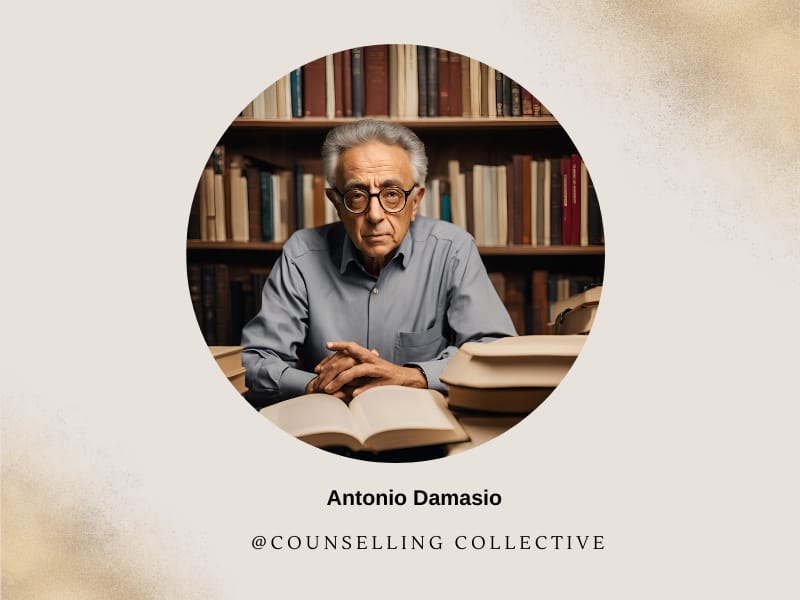Contents
Introduction
Erik Erikson was a renowned German-American psychologist best known for his theory on psychosocial development and the concept of the identity crisis.
Erikson’s work has profoundly impacted developmental psychology, offering insights into identity formation and social relationships.
In this article, we explore Erikson’s key theories and their lasting impact on psychology. We’ll readout into his stages of development and the concept of the identity crisis. Explore more psychologists here
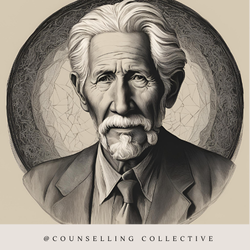
Life Of Erik Erikson
In 1930, Erik Erikson married Joan Serson, a Canadian dance teacher, and they had two children together. Their family life was an integral part of Erikson’s personal and professional journey, blending his psychological theories with his experiences as a husband and father.
His work in psychoanalysis was deeply informed by his own family dynamics and his observations of human development.
Image Source: goodtitevs.best
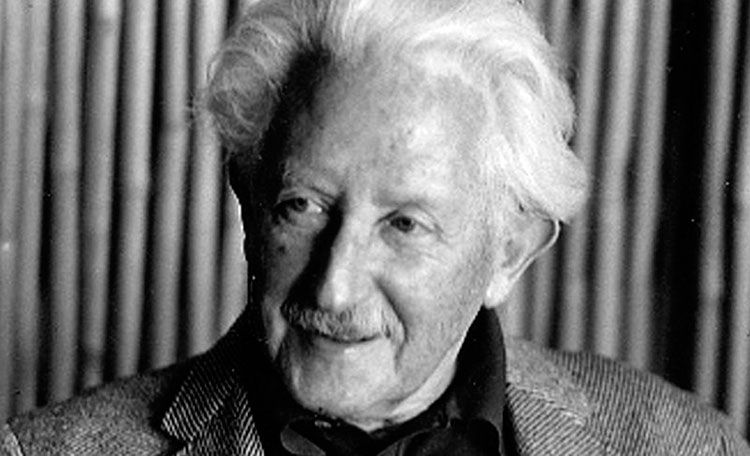
Erik Erikson, Born on June 15, 1902, in Frankfurt, Germany, to Danish parents, Erik Erikson was initially known as Erik Homburger.
- Childhood Environment: Erik Erikson faced instability and identity struggles due to his parents’ separation and his Jewish heritage, which influenced his later theories.
- Education: Despite a turbulent upbringing, Erikson was passionate about art and culture.
- University Studies: In the 1920s, Erikson moved to the U.S. to pursue psychology, studying at the Boston School of Art and the Vienna Psychoanalytic Institute, which shaped his developmental perspectives.
- Early Career and Influences: Erikson’s work with children and diverse social groups, along with his observations of cultural practices, led to his groundbreaking theory of psychosocial development and insights on identity.
Erik Erikson continued to contribute to psychology through his writing, teaching, and clinical practice. His theories on identity and psychosocial development have had a lasting impact on the field.
He passed away on May 12, 1994, in Harwich, Massachusetts. Erikson’s legacy endures through his influential theories and his pioneering work in understanding human development across the lifespan.
Education Background Of Erik Erikson
| Education Level | Details |
| High School | Attended local grammar school in Frankfurt, Germany |
| Undergraduate Studies | Studied art in Munich and traveled through Europe; did not complete a formal undergraduate degree |
| Graduate Studies | Trained in psychoanalysis at the Vienna Psychoanalytic Institute under Anna Freud |
| Advanced Education | Studied psychoanalysis, developmental psychology, and related fields |
| Notable Mentors | Anna Freud: a significant influence in psychoanalysis, particularly in child development and the application of psychoanalytic principles |
| Influences | Influenced by psychoanalytic theory and developmental psychology |
Notable Works of Erik Erikson
| Theory Details | Details | Significance |
| Anna Freud (Influence Study) | Worked with Anna Freud at the Vienna Psychoanalytic Institute. | Highlighted the impact of Anna Freud’s work on Erikson’s understanding of child psychology and developmental stages. |
| Identity Crisis (Adolescence) | Conceptualized the “identity crisis” as a key developmental challenge during adolescence. | Emphasized the critical period during adolescence when individuals form their personal identity and experience role confusion, shaping their future development. |
| The Life Cycle Completed (Book) | Published in 1982, synthesizing his theory of psychosocial development across the lifespan. | Provided a comprehensive overview of Erikson’s eight stages of psychosocial development, offering insights into the entire human lifespan. |
| The Epigenetic Principle | Proposed that development unfolds through a series of stages, each building on the previous. | Introduced the idea that development occurs through a predetermined sequence of stages, each building upon the previous ones, emphasizing the interaction between genetics and environment. |
| Syntonic and Dystonic States | Studied the balance between positive (syntonic) and negative (dystonic) aspects of each stage. | Explained the balance between positive (syntonic) and negative (dystonic) elements at each developmental stage, influencing overall psychological health. |
8 Stages of Psychosocial Development by Erik Erikson
Erik Erikson significantly advanced psychology with his theory of psychosocial development, detailing eight stages of growth. Each stage is marked by a unique conflict that plays a important role in personal development and identity formation.
Below is a summary of the stages introduced by Erik Erikson.
| Stage | Major Conflict and Description |
| Ego Integrity vs. Despair | Reflecting on life and achieving a sense of fulfillment. |
| Trust vs. Mistrust | Focuses on the development of trust and security when caregivers provide consistent care. |
| Autonomy vs. Shame and Doubt | Centers on the development of personal control and independence, balanced against feelings of shame or doubt. |
| Initiative vs. Guilt | Involves children asserting power and control through directing play and other social interactions. |
| Industry vs. Inferiority | Concerns the development of competence and achievement in academic and social spheres, balanced against feelings of inferiority. |
| Identity vs. Role Confusion | Focuses on the exploration of personal identity and direction in life, leading to a coherent sense of self. |
| Intimacy vs. Isolation | Involves forming deep, meaningful relationships and connections, contrasted with feelings of isolation and loneliness. |
| Generativity vs. Stagnation | Centers on contributing to society and guiding future generations, balanced against feelings of stagnation. |
Erik Erikson’s work had a profound impact on psychology and related fields:
- Cultural Impact: His concepts, especially the identity crisis during adolescence, influenced education, counseling, and social policy, emphasizing the interplay between personal identity and societal expectations.
- Academic Institutions: Contributed to developmental and clinical psychology through his work at Harvard and Yale, integrating psychosocial theory into educational and training programs.
Famous Books and Publications
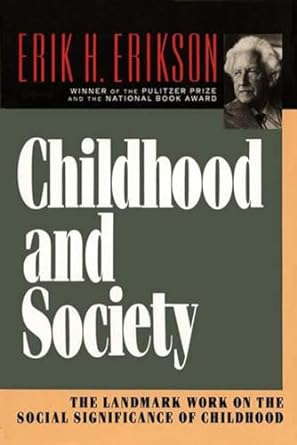
Childhood and Society 1950
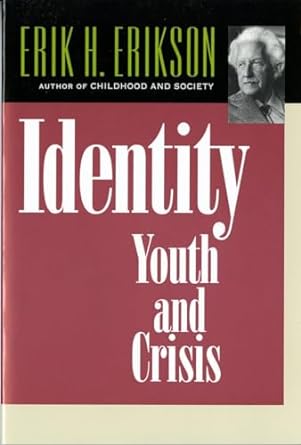
Identity: Youth and Crisis 1968
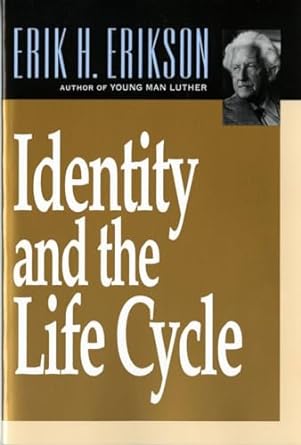
The Life Cycle Completed 1982
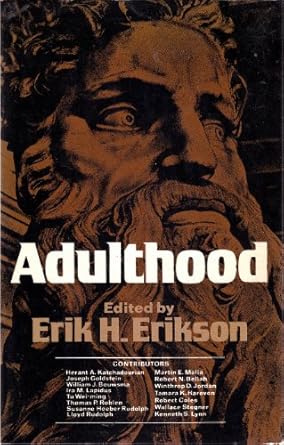
Adulthood 1978
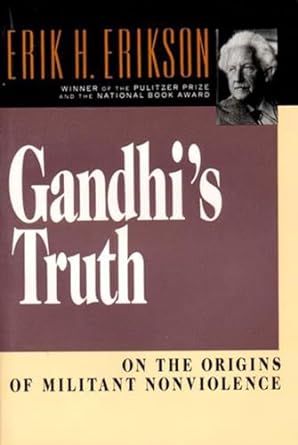
Gandhi’s Truth 1969
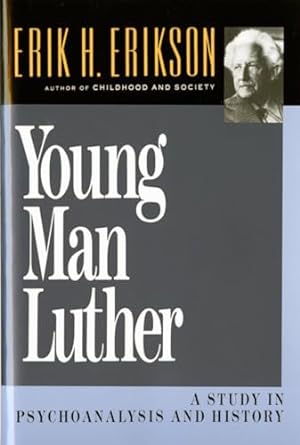
Young Man Luther 1958
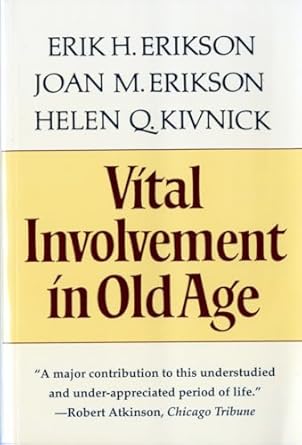
Vital Involvement in Old Age 1986
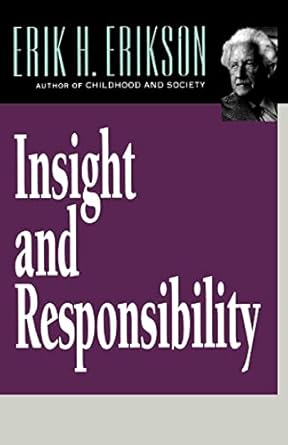
Insight and Responsibility 1964
Influence on Contemporary and Future Psychological Research
- Therapeutic Practices: Erikson’s theories shape humanistic and person-centered therapy, focusing on identity and psychosocial development.
- Cultural Impact: His work influences research on the interaction between cultural factors and individual development, especially in social roles and cultural identity.
- Generativity Research: Erikson’s concept of generativity guides research on adult development, societal contribution, and personal fulfillment.
- Educational Applications: His developmental stages inform educational practices and policies, ensuring age-appropriate support and interventions.
- Aging and Elderly Studies: Erikson’s theories on integrity vs. despair impact research on aging, life satisfaction, and psychological aspects of later life transitions.
Psychologists Influenced by Erik Erikson Work
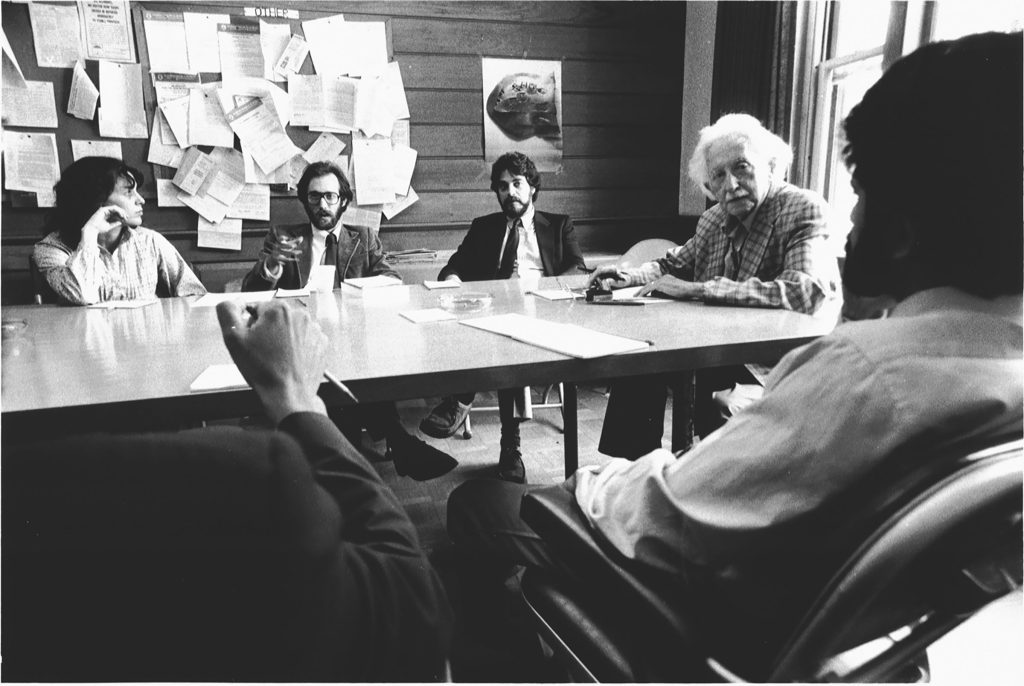
- James Marcia: Expanded Erikson’s identity concepts with the identity status model (diffusion, foreclosure, moratorium, achievement).
- Daniel Levinson: Built on Erikson’s stages with adult development theory, exploring life structure and mid-life transitions.
- Jeanette L. Johnson: Applied Erikson’s theories to identity formation in minority groups, focusing on cultural and societal influences.
- Joan Erikson: Extended Erikson’s theories into older adulthood and co-authored “The Life Cycle Completed.”
- Robert Kegan: Developed constructive-developmental theory, exploring stages of adult development and self-concept evolution
Legacy of Erik Erikson
- Identity Formation: His concept of the “identity crisis” during adolescence has greatly influenced research on identity, self-concept, and personal development.
- Influence on Therapy: Erikson’s work has impacted humanistic and person-centered therapy, guiding contemporary therapeutic practices and client interactions.
- National Medal of Science (1971): Although not awarded to Erikson directly, his contributions to psychology influenced the fields recognized by this medal.
- Interdisciplinary Influence: Erikson’s theories have impacted psychology, sociology, education, and social work, shaping approaches to identity and development across various fields.
Conclusion
Erik Erikson’s start theory of psychosocial development, encompassing eight stages from infancy to old age, has profoundly shaped our understanding of human growth and identity formation.
His concept of the “identity crisis” during adolescence remains influential in both psychology and education. Through his extensive research and publications, Erikson’s insights continue to impact therapeutic practices and developmental studies, affirming his enduring legacy in the field of psychology.
FAQs
What is Erik Erikson known for?
Erik Erikson is best known for his theory of psychosocial development which outlines eight stages of growth from infancy to old age. His concept of the “identity crisis” during adolescence is also a significant contribution.
What are the eight stages of Erikson’s psychosocial development?
The eight stages are: Trust vs. Mistrust, Autonomy vs. Shame and Doubt, Initiative vs. Guilt, Industry vs. Inferiority, Identity vs. Role Confusion, Intimacy vs. Isolation, Generativity vs. Stagnation, and Integrity vs. Despair.
How did Erik Erikson’s theory influence modern psychology?
Erikson’s theory has influenced understanding of human development across the lifespan, informed therapeutic practices, and shaped research on identity and psychosocial conflicts.
What is the concept of the “identity crisis” in Erikson’s theory?
The “identity crisis” refers to the critical period during adolescence when individuals explore and form their personal identity and sense of self, facing challenges and conflicts related to their role in society.
What are some notable works by Erik Erikson?
Key works include Childhood and Society Identity: Youth and Crisis The Life Cycle Completed and Gandhi’s Truth
Bibliography
- [1] Erikson, E. H. (1950). Childhood and society. W. W. Norton & Company.
- [2] Erikson, E. H. (1968). Identity: Youth and crisis. W. W. Norton & Company.
- [3] Erikson, E. H. (1982). The life cycle completed. W. W. Norton & Company.
- [4] Erikson, E. H. (1998). The healing power of ego. W. W. Norton & Company.
- [5] Marcia, J. E. (1966). Development and validation of ego-identity status. Journal of Personality and Social Psychology, 3(5), 551–558.
- [6] Levinson, D. J. (1978). The seasons of a man’s life. Alfred A. Knopf.
- [7] Johnson, J. L. (1992). Erikson’s theory of psychosocial development and identity formation in minority groups. Journal of Multicultural Counseling and Development, 20(2), 67–78.
- [8] Joan Erikson, & Erikson, E. H. (1997). The life cycle completed: Extended version. W. W. Norton & Company.
- [9] Kegan, R. (1982). The evolving self: Problem and process in human development. Harvard University Press.
- [10] Freud, A., & Erikson, E. H. (Eds.). (1951). The psychoanalytic study of the child. Volume VI. International Universities Press.

